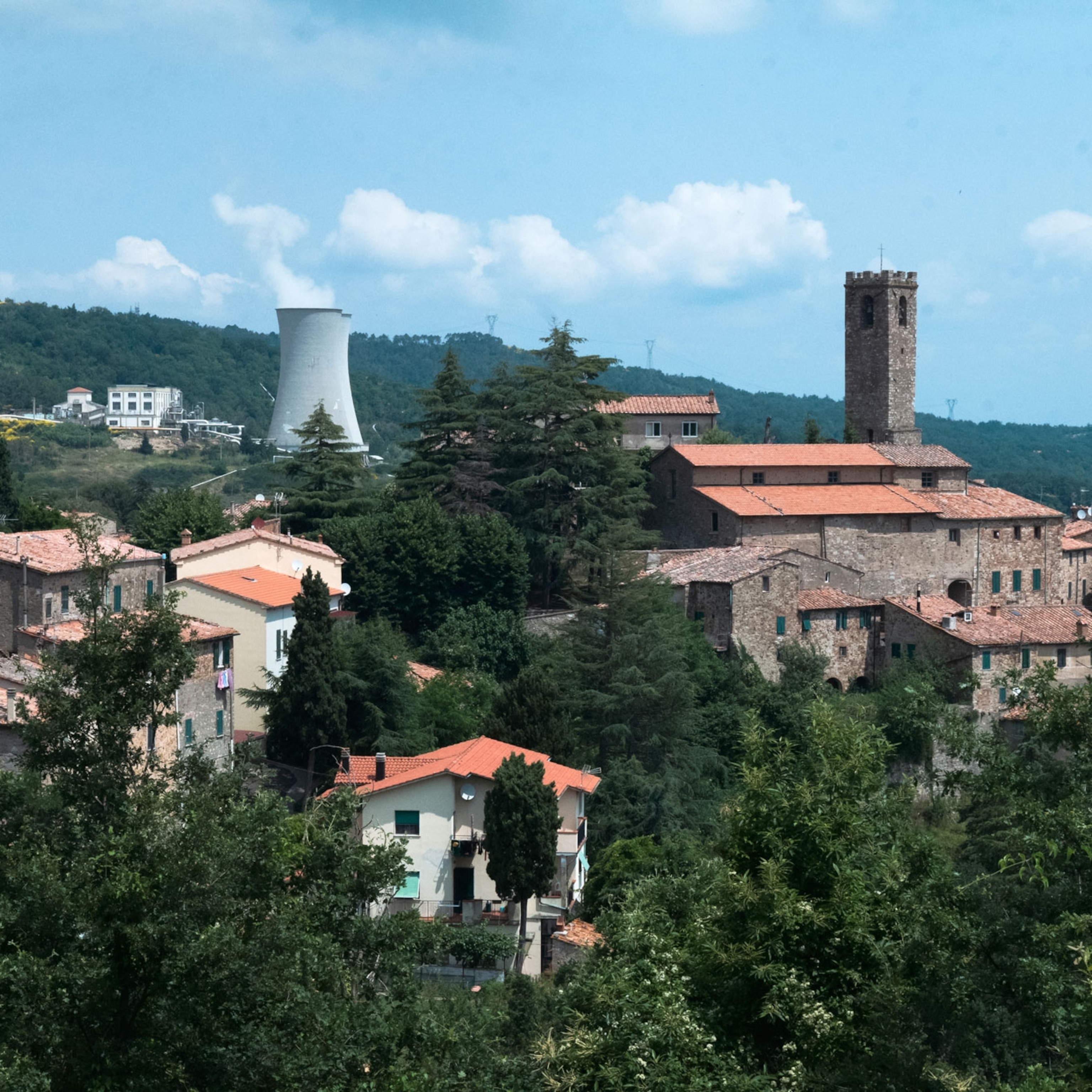
‘Recharged’: Linkin Park’s Efforts on Energy Poverty Get Brighter
Two years ago, the band Linkin Park kicked off an initiative called Power the World with the goal of bringing clean energy to one million people. It started in partnership with the United Nations’ Sustainable Energy for All program, which aims to achieve universal energy access by 2030. (See related post: “Linkin Park’s Bid to Power the World.”)
The Grammy-winning rock-rap sextet, whose appropriately titled album Recharged was released last month, have since promoted a series of initiatives geared toward improving energy access: solar lights in Haiti, solar suitcases in Uganda, energy-generating soccer balls in South Africa. The band has even released a free game, LP Recharge, set in “a not-too-distant future where humans have depleted all natural resources on the planet” and the remaining energy has been seized by an “elite minority.” Players are challenged to restore clean, sustainable power to the world.
For their latest real-world project, the band is turning to the problem of polluting cookstoves. (See related story: “Biochar Cookstoves Boost Health for Both People and Crops.”) Nearly three billion people worldwide use open fires or traditional stoves for cooking and heat, which results in deadly health effects and often contributes to deforestation. One such region where this symptom of energy poverty has taken a toll: the Terai region of Nepal, where each person uses an average of 2,000 pounds of wood each year for energy. Along with the World Wildlife Fund, Linkin Park and Power the World are trying to provide an alternative means of energy for people in the Himalayan village of Kumrose: biogas systems, which convert human and animal waste to methane for fuel.
The average cost of one biogas system, which includes a cookstove, biodigester and toilet, is $565, and any person who raises that amount by this Friday, November 22, will be entered to win tickets to an exclusive, private Linkin Park show. So far, according to the campaign’s fundraising site, only a handful of people have managed to raise that amount so far, so odds of winning may be good for those who achieve the goal. (See related blog post: “Cookstove Smoke Is ‘Largest Environmental Threat,’ Global Health Study Finds.”)
We were in touch with Linkin Park bassist Dave “Phoenix” Farrell last year about Power the World’s efforts and checked in with him again recently about this latest project. Farrell answered our questions via email.
Linkin Park had kicked off Power the World two years ago, with a project to bring solar lights to Haiti. What have you seen in terms of results, and was there anything you learned in that first project that you were able to bring to other causes?
The Haiti Solar Light program has been fantastic. As a result of Power the World’s support, more than 3,000 families have clean energy products, including the solar lights. Each of these solar lights directly replaces kerosene, candles and charcoal, resulting in household savings of over $5 per month. We learned that Power the World can help on multiple levels, improving lives, livelihoods and protecting the environment.
The stated goal of Power the World, which supports the United Nations’ Sustainable Energy for All initiative, is to bring clean energy to 1 million people. How is this goal being tracked, and can you say how many have been helped so far?
Music for Relief and the UN Foundation (UNF) are tracking the number of people impacted by our programs. For example, Power the World has raised funds for almost 100 solar suitcases (portable solar energy systems) to be installed at hospitals and health clinics in Uganda and so far the solar power is benefiting 20,000 mothers and 20,000 babies annually, and the program is still going. We’re also working with UNF to influence corporations and governments to support clean energy through our Power the World pledge, which you can find and sign here.
Power the World’s latest cause is providing clean biogas cookstoves to a village in Nepal. Why and how did this project come about?
Nepal is one of the poorest countries in the world and we want to help in areas where we can make a big impact. We loved the program with WWF in Nepal because helps wildlife, people and the planet.
This time, Linkin Park is challenging people to run their own cookstove fundraisers, and those who raise at least $565 (the cost of one biogas system) by November 22 will be entered to win tickets to see the band play a small, private show. Have you tried this approach before, in terms of using shows as incentive to get people involved?
We have, actually. We challenged people to raise funds to earn a ticket to see us play in a small venue in Los Angeles to support Japan Earthquake Recovery. This was incredibly successful. Supporters [of our non-profit organization Music for Relief] and our fans totally exceeded our expectations and went above and beyond to help kids in Japan. We hope fans will do the same for this program. Start a fundraiser here.
What have you found, now that you have some experience in trying to get people engaged with the issue of energy poverty, works well or does not work so well? What do people need to know about why this is important?
I think the most important thing for people to know is that energy poverty is impacting people’s lives right now. Clean energy is critical to health, safety, education and livelihoods and it impacts wildlife and our planet. Get involved in clean energy solutions at powertheworld.org.
(See related post: “TV Show ‘Revolution’ Teams Up With United Nations to Shine Light on a World Without Power.”)
Related Topics
You May Also Like
Go Further
Animals
- Octopuses have a lot of secrets. Can you guess 8 of them?
- Animals
- Feature
Octopuses have a lot of secrets. Can you guess 8 of them? - This biologist and her rescue dog help protect bears in the AndesThis biologist and her rescue dog help protect bears in the Andes
- An octopus invited this writer into her tank—and her secret worldAn octopus invited this writer into her tank—and her secret world
- Peace-loving bonobos are more aggressive than we thoughtPeace-loving bonobos are more aggressive than we thought
- Why are these emperor penguin chicks jumping from a 50-foot cliff?Why are these emperor penguin chicks jumping from a 50-foot cliff?
Environment
- U.S. plans to clean its drinking water. What does that mean?U.S. plans to clean its drinking water. What does that mean?
- Food systems: supporting the triangle of food security, Video Story
- Paid Content
Food systems: supporting the triangle of food security - Will we ever solve the mystery of the Mima mounds?Will we ever solve the mystery of the Mima mounds?
- Are synthetic diamonds really better for the planet?Are synthetic diamonds really better for the planet?
- This year's cherry blossom peak bloom was a warning signThis year's cherry blossom peak bloom was a warning sign
- The U.S. just announced an asbestos ban. What took so long?The U.S. just announced an asbestos ban. What took so long?
History & Culture
- This ancient cure was just revived in a lab. Does it work?This ancient cure was just revived in a lab. Does it work?
- See how ancient Indigenous artists left their markSee how ancient Indigenous artists left their mark
- Why Passover is one of Judaism’s most important holidaysWhy Passover is one of Judaism’s most important holidays
- Is this mass grave a result of contagion—or cannibalism?Is this mass grave a result of contagion—or cannibalism?
- The surprising story of how chili crisp took over the worldThe surprising story of how chili crisp took over the world
- We swapped baths for showers—but which one is better for you?We swapped baths for showers—but which one is better for you?
Science
- Why outdoor adventure is important for women as they ageWhy outdoor adventure is important for women as they age
- 4 herbal traditions used every day, all over the world4 herbal traditions used every day, all over the world
- Ground-level ozone is getting worse - here's what that meansGround-level ozone is getting worse - here's what that means
- Would your dog eat you if you died? Get the facts.
- Science
- Gory Details
Would your dog eat you if you died? Get the facts.
Travel
- Why it's high time for slow travel in Gstaad
- Paid Content
Why it's high time for slow travel in Gstaad - The travel essentials we’re most excited for in 2024The travel essentials we’re most excited for in 2024
- How citizen science projects are safeguarding Costa Rican pumasHow citizen science projects are safeguarding Costa Rican pumas







